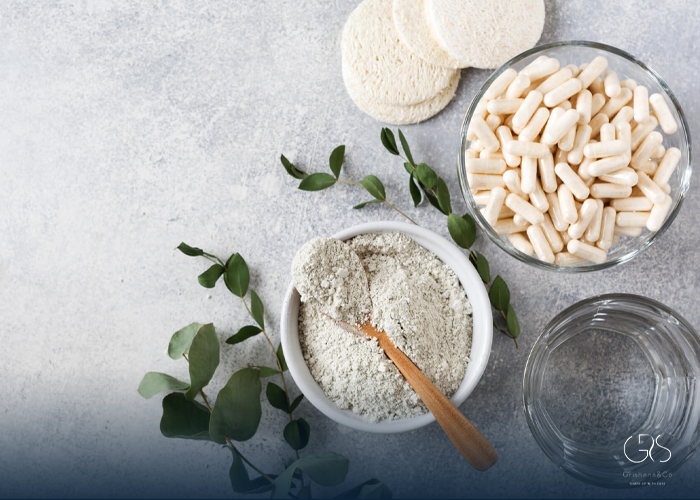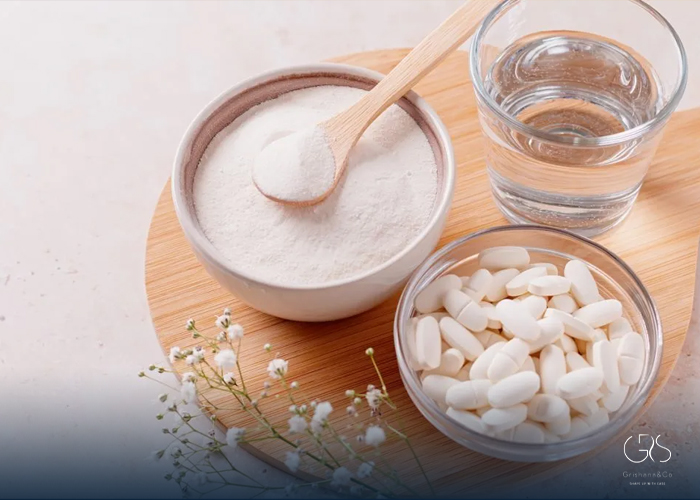Collagen, an essential protein in the body, plays a vital role in maintaining the health of our skin, nails, hair, joints, and connective tissues. As we age, our natural collagen production declines, leading to various health concerns. This decline has fueled the popularity of collagen supplements. Before considering collagen supplementation, it is crucial to assess its necessity and familiarize oneself with the different types of collagen available, as well as explore natural sources of collagen.
Determining the Need for Collagen Supplements
The decision to incorporate collagen supplements into one’s routine depends on individual factors such as age, lifestyle, and specific health issues. While some individuals may benefit from collagen supplementation, others may not require it due to their body’s innate ability to produce collagen. Consultation with a healthcare provider can help determine the necessity of collagen supplementation based on individual needs.

Health Benefits of Collagen Supplements
Skin Health and Anti-Aging: Collagen supplements are widely used in skincare for their ability to enhance skin elasticity, reduce wrinkles, and promote a more youthful appearance. Research indicates that collagen supplementation can significantly improve skin elasticity and hydration, contributing to overall skin health and potentially slowing down the aging process.
 Joint Health and Pain Relief: Collagen is crucial for maintaining joint strength and flexibility. Supplementing with collagen can help reduce joint pain, improve mobility, and support overall joint health. Studies on athletes with joint pain have shown that collagen supplementation effectively alleviates symptoms and enhances joint function.
Joint Health and Pain Relief: Collagen is crucial for maintaining joint strength and flexibility. Supplementing with collagen can help reduce joint pain, improve mobility, and support overall joint health. Studies on athletes with joint pain have shown that collagen supplementation effectively alleviates symptoms and enhances joint function.
Gut Health Support: Collagen is an integral component of the gut lining. Supplementing with collagen can help reduce inflammation, strengthen the intestinal barrier, and promote gut health. Studies have demonstrated that collagen supplementation can alleviate symptoms and enhance quality of life in individuals with inflammatory bowel disease.
Hair and Nail Health: Collagen contains essential amino acids necessary for producing keratin, the protein responsible for healthy hair and nails. Evidence suggests that collagen supplementation can boost hair thickness, strength, and overall appearance. Additionally, it has shown promise in strengthening brittle nails.
Types of Collagen Supplements
1.Type I Collagen: Predominantly found in the skin, tendons, bones, and organs, Type I collagen is known for preserving skin elasticity and supporting skin health.
2.Type II Collagen: Mainly present in cartilage, Type II collagen plays a pivotal role in promoting joint health and alleviating joint pain.
3.Type III Collagen: Found in the skin, blood vessels, and organs, Type III collagen primarily supports skin health and elasticity. It is often combined with Type I collagen in supplements.
4.Multi-Collagen Blends: These formulations combine various collagen types, offering a comprehensive array of benefits for overall health and well-being.
Natural Sources of Collagen
Aside from supplements, collagen can also be obtained naturally from various food sources, such as:
- Bone broth: Made by simmering animal bones and tissues, bone broth is rich in collagen and other essential nutrients.

- Fish: Fish skin and scales are abundant sources of collagen, making fish an excellent addition to a collagen-boosting diet.

- Bone-in meats: Consuming cuts of meat with bones, such as chicken with skin or beef with marrow, can provide natural collagen.
- Gelatin-rich foods: Gelatin, a derivative of collagen, is found in foods like gelatin desserts, gummies, and certain dairy products.
Incorporating collagen-rich natural foods into your diet alongside supplements can further support overall collagen intake and promote optimal health and well-being.
Conclusion
collagen supplements offer a range of health benefits, including improved skin health, joint pain relief, gut support, and hair and nail health. Before starting a collagen supplementation regimen, consulting with a healthcare professional is recommended to assess its necessity and select the most suitable type of collagen. Embracing natural sources of collagen in your diet can complement supplementation efforts and contribute to a holistic approach to health and wellness.
Sources
- Medical News Today, Collagen: What is it and what are its uses?
- Healthline, 13 Foods That Help Your Body Produce Collagen
- Cleveland Clinic, The Best Collagen-Rich Foods












